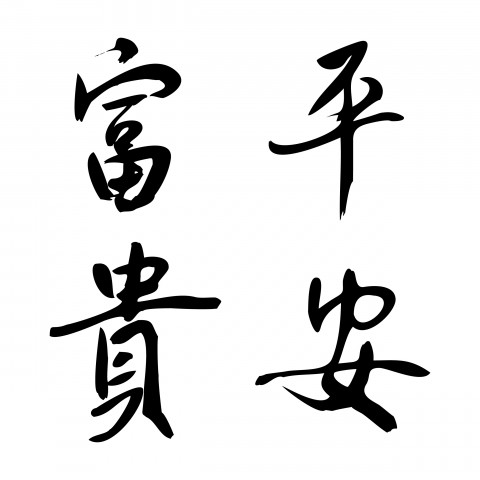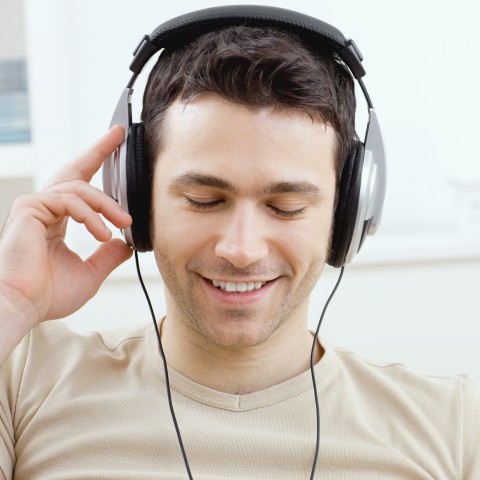I started searching for a Japanese course a little over 6 months ago, when I really started to get interested in language learning. I quickly discovered that there weren’t a lot of options out there for students of the language. The lion’s share of materials were aimed at people learning languages like Spanish or French.
A few of the most notable courses left me disappointed. They simply didn’t do a good job of teaching the Japanese language. Some of the most popular options didn’t really have that much to offer. In this article we’ll look at 5 aspects of a good Japanese course. We’ll also look at how JapanesePod101, is a rare exception among most courses, as it thoroughly fulfills all 5 aspects.
1) It isn’t afraid of Japanese grammar
In the language learning world Japanese grammar is a beast all its own. With attributes such as honorific language, a flexible word order, particles, and clause-modifiers of nouns all work together to make the Japanese grammar system incredibly fascinating, but undeniably difficult for native English speakers. A quick search on Reddit or Quora will reveal a host of puzzled Japanese learners who are doing their best trying to grapple with the language. Linguistically speaking, you can’t get much further from English than Japanese. It’s consistently ranked as one of the hardest languages for native English speakers to learn.
More often than not a language learning company will slap a Japanese sticker on what’s essentially a Spanish or French course. They make little to no accommodation for the mechanics of the Japanese language. Some language courses even ignore the grammatical difference entirely!
The way you learn a romance language like Spanish will not be the same way you should approach an asian language like Japanese. One thing I love about JapanesePod101 is that it dives straight into Japanese grammar from the get go. Every lesson highlights a very specific aspect of grammar as it’s used in the audio portion of the podcast, and you are given a list of explanations and example sentences to go along with it.
It’s essentially as if JapanesePod101 took the best parts of a Japanese language class and put it right at your fingertips.
2) It doesn’t ignore Kanji or Hiragana
Just as Japanese grammar is notoriously unique, so is its writing system. In fact it’s writing system is cited as one of the most difficult in the world. This is mainly because it combines 3 different writing systems into one. Hiragana and katakana aren’t usually too hard for native English speakers to pick up, but it’s the logographic Kanji that pose the real challenge.
9 times out of 10 a Japanese course only includes romaji (Japanese written in latin script) in their learning materials. Users aren’t exposed much, if at all, to the writing system actually used in Japan. Romaji isn’t always bad, and it certainly has its uses, but it’s definitely not a substitute for actual Japanese writing.
JapanesePod101’s lesson transcripts (available in English, romaji, kanji, and hiragana) are just about the perfect tools for familiarizing yourself with the Japanese writing system while learning grammar and vocabulary. The site’s built in spaced repetition flashcard system is also ideal for committing kanji to memory.
3) Helps you listen in Japanese
Listening comprehension is an often overlooked skill when learning any foreign language, not just Japanese. It’s one thing to know words when you see them in a textbook or when you speak them. But it’s a whole different ballgame when you try to understand native speakers talking at normal speed. Syllables and sounds gets reduced or dropped and whole phrases are spoken in rapid succession. If you haven’t practiced listening to native speakers then your first Japanese conversation could be a rude awakening.
This is why good audio courses can be so powerful. If they’re worth their salt they acclimate your ear to the language gradually over time. At first the speakers talk slow and space out their words, but as the course progresses the dialogue becomes more difficult. JapanesePod101 has a great slow playback feature that allows you to listen to individual words at a regular or reduced speed. This is a superb option for easing yourself into the Japanese sound system.
4) Gives you practical vocabulary
There are a lot of language courses out there that simply fail to provide you with relevant vocabulary that you can actually use in a conversation. This is one of my biggest pet peeves in the language learning world, and I’ve written extensively about language learning programs that do this. You don’t want to spend valuable time and energy learning vocabulary that you’re not likely to use, especially if you’re a beginner.
Sentences like “the cat drinks milk”, or “the man runs”, just aren’t all that useful in the real world. While there is an aspect of vocabulary that is inevitably personal (your job, personal interests, etc), there are still words, phrases, and grammatical constructions that carry over to a variety of uses. Part of the genius of JapanesePod101 is that each lesson is built around a dialogue between native speakers.
This is great because you see grammar and vocabulary in action. It’s a lot easier to remember how to make a certain sentence construction when you first heard it in a conversation. The contexts of the podcast are also highly practical. You’re talking to someone on the street, to friends in a restaurant, or maybe speaking with a loved one over the phone. Throughout the podcast series there’s a real push to learn grammar and vocabulary in a practical setting. This is a feature sorely lacking from far too many Japanese courses.
5) It should be interesting, even fun!
A dull language course is the worst. Language learning isn’t always easy, but that doesn’t mean that it has to be boring. At its heart the language learning process is one of continual discovery, and a good Japanese course should reflect that. Thus I appreciate the hosts in JapanesePod101, because they do a good job of engaging the listener. Even though you are learning a great deal of grammar, vocabulary, and cultural insights; their playful tone and banter help keep things lively and interesting. It’s a far cry from some older more traditional audio courses.
Final thoughts
So there you have it, 5 things to look for in a good Japanese course. Remember when learning a foreign language, using a good course or method is important; but even the best course isn’t a substitute for hard work and consistent practice. If you stay focused and put in the effort you will see your language skills improve!














